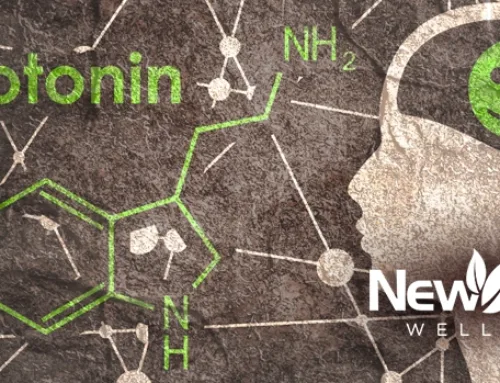Are you feeling down and worried that you might have depression? Do you have memory problems or trouble focusing and are worried that you might have ADD? Are you gaining weight and don’t know why? It could be your hormones!
Hormones are chemical messengers produced in the body that control and regulate the activity of certain cells or organs. Neurohormones have an important impact on the brain. The human body produces hundreds of hormones, but the following four of them have a very direct influence on brain health/mental health:
• Thyroid—energy regulation
• Estrogen—mood modulator
• Progesterone—nature’s anti-anxiety hormone
• Testosterone—mood, motivation, sexuality, strength
NEUROHORMONES AND THE BRAIN
Communication between the brain and hormones goes both ways. The brain sends out signals that instruct your body’s glands to produce and release hormones, and hormones from within the body send messages back to the brain that influences its activity.
When hormones are healthy, you tend to feel vibrant and energetic. When the hormones that affect your brain neurohormones are off, you are off. You may experience symptoms that change the way you think, feel, and act in negative ways. It also makes you more vulnerable to conditions like anxiety, depression, and even psychosis. If nobody checks your hormone levels, you will never know the root cause of your issues. And if your hormones are the problem, no amount of psychiatric medications will get you right.
THYROID: THE MOOD AND ENERGY REGULATOR
The thyroid is a small, butterfly-shaped gland located in your lower neck that plays a powerful role in keeping your brain and body healthy. This gland regulates how your body uses energy, and it also has a strong impact on the brain because it controls the production of many neurotransmitters, such as dopamine, serotonin, and GABA. Problems occur when thyroid dysfunction causes the gland to produce too little hormone (hypothyroidism) or too much hormone (hyperthyroidism).
Hypothyroidism: Brain SPECT scans of people with hypothyroidism show overall decreased brain activity, which often leads to depression, cognitive impairment, anxiety, and brain fog.
Hyperthyroidism: An overactive thyroid produces too much hormone, making everything in your body work too fast. It can feel like you’re in hyper-drive—you feel jittery and edgy, as though you’ve had way too much caffeine.
COMMON SYMPTOMS OF THYROID DYSFUNCTION
Hypothyroidism
• Fatigue
• Difficulty concentrating
• Memory problems
• Depression
• Attentional problems
• Psychosis
Hyperthyroidism
• Sleeplessness, restlessness
• Anxiety
• Irritability
• Racing thoughts
• Difficulty concentrating
• Memory problems
• Depression
• Mania
• Psychosis






